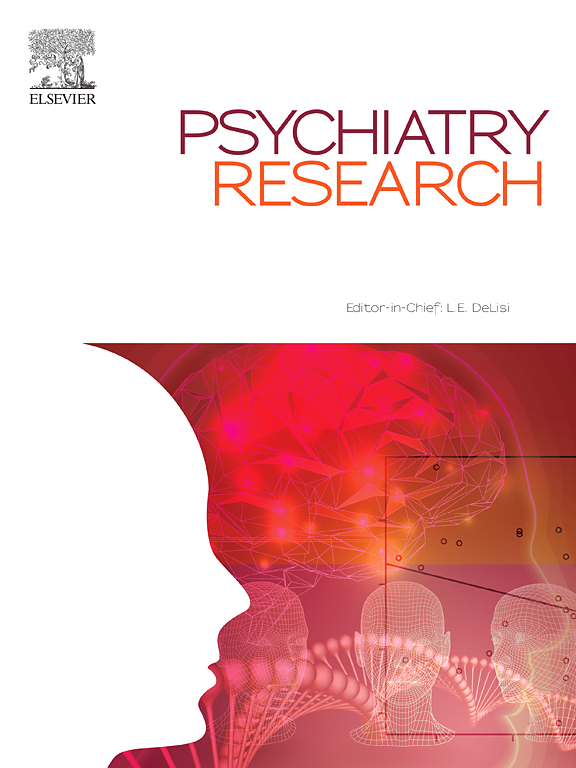Patient preference effects in a randomized comparative effectiveness study of electroconvulsive therapy and ketamine for treatment resistant depression: An ELEKT-D trial secondary analysis
IF 4.2
2区 医学
Q1 PSYCHIATRY
引用次数: 0
Abstract
Introduction
Previous studies have shown patient preference can have large effects on treatment adherence and patient satisfaction. However, the direct effects of matching treatment with patient preference on efficacy and safety outcomes remain unclear. We aimed to evaluate the effects of patient preference and preference-matching on efficacy, adverse events, and adherence to electroconvulsive therapy (ECT) and intravenous (IV) ketamine treatments in a randomized clinical trial.
Methods
Data were collected during the Patient-Centered Outcomes Research Institute (PCORI) funded ECT vs. Ketamine in Patients with Treatment Resistant Depression (ELEKT-D) study, which randomized patients to treatment with either ECT or IV ketamine across five U.S. sites. We performed post hoc-analyses on 255 patients who provided responses to a patient preference survey following treatment phase completion, which allowed us to explore the relationships between treatment preference and several treatment outcome measures.
Results
Our analysis showed that (1) Ketamine was preferred by more trial participants than ECT; (2) Preference for ketamine was associated with higher likelihood of treatment response for all patients regardless of treatment assignment; (3) Preference-matching (patients receiving the treatment they indicated a moderate or strong preference for on the survey) was associated with greater likelihood of treatment response to ketamine but not ECT; (4) Preference-matching was associated with reduced rates of adverse events in ECT-treated patients. There was a trend for preference-matching potentially influencing treatment adherence.
Conclusions
Our findings suggest treatment preference-matching affects treatment effectiveness, adverse event reporting and possibly adherence. However, these associations may be contextual, modality dependent, and complex.

求助全文
约1分钟内获得全文
求助全文
来源期刊

Psychiatry Research
医学-精神病学
CiteScore
17.40
自引率
1.80%
发文量
527
审稿时长
57 days
期刊介绍:
Psychiatry Research offers swift publication of comprehensive research reports and reviews within the field of psychiatry.
The scope of the journal encompasses:
Biochemical, physiological, neuroanatomic, genetic, neurocognitive, and psychosocial determinants of psychiatric disorders.
Diagnostic assessments of psychiatric disorders.
Evaluations that pursue hypotheses about the cause or causes of psychiatric diseases.
Evaluations of pharmacologic and non-pharmacologic psychiatric treatments.
Basic neuroscience studies related to animal or neurochemical models for psychiatric disorders.
Methodological advances, such as instrumentation, clinical scales, and assays directly applicable to psychiatric research.
 求助内容:
求助内容: 应助结果提醒方式:
应助结果提醒方式:


